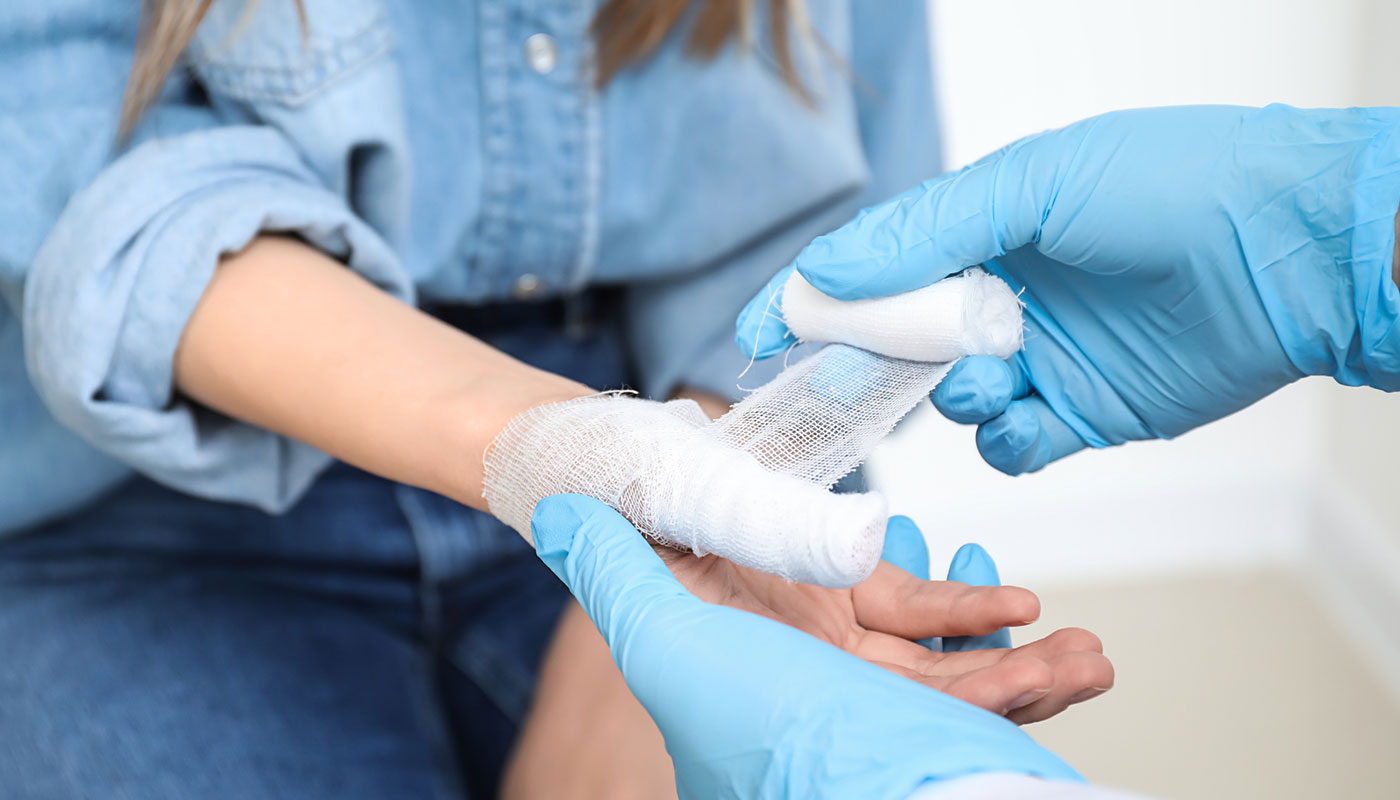
What are Lacerations?
Symptoms of a Laceration
Those with mild lacerations may experience some bleeding accompanied by mild pain. If the laceration severe enough to reach deep tissue, the injured person may experience greater bleeding and more intense pain.
Treating Laceration Wounds
As with most skin injuries, cleaning the wound is of utmost importance to stave off infection and inflammation. Minor lacerations can often be treated at home with the use of a topical ointment, such as Neosporin and the application of a basic bandage. When treating a minor laceration, our urgent care clinic staff recommends that you first apply pressure to the cut with a clean bandage to limit bleeding as much as possible before disinfecting the laceration and placing a bandage.
For deeper wounds that affect the tissue beneath the skin and bleed heavily, it is important to seek attention from a medical professional who can determine the best method to close the wound as some lacerations may require closure by wound adhesive (skin glue), staples, skin tape or sutures (stitches).
For those with severe lacerations, receiving medical attention in a timely manner is often crucial to recovery. With locations in Corte Madera and Novato, CA, our dedicated urgent care staff are trained to provide excellent, clinically appropriate treatment for non-life threatening injuries such as lacerations, saving you the time and frustration that can accompany a visit to the emergency room.
At our urgent care center, our clinical staff will clean your wound and assess the risk of infection. If part of the wound has dead or damaged skin, this may need to be trimmed or removed to prevent infection developing. Wounds longer than 5 cm or wounds that involve deeper tissues the skin may need stitches, while smaller lacerations can be treated with skin glue or specialized skin tape. In addition to the initial injury there is a risk of permanent tattooing of the skin from gravel, dirt, grit, et cetera that may remain in the wound; a visit to one of our offices will minimize this risk.
Our medical staff will also need to ask you for information about what caused the injury. Wounds caused by a penetrating object like a nail, needle, et cetera, will need to be carefully examined and may even need an x-ray to ensure that there is no remaining debris inside the wound. If we suspect the cut has damaged deeper tissues such as nerves, tendons, or joints, it’s possible you may need referral to be examined by one of our highly-trained doctors, who will devise a treatment plan to minimize scarring.
Once the cut is cleaned by our team of medical professionals, we may recommend you undergo a tetanus booster as the bacteria that causes tetanus can enter the skin through cuts or puncture wounds. Providing this booster is just one more way our urgent care clinic can make sure that you are on the path to a successful recovery.